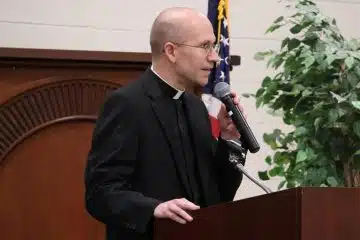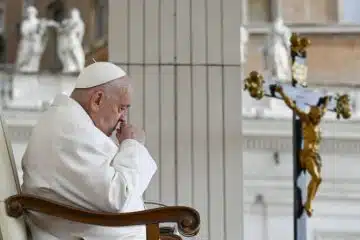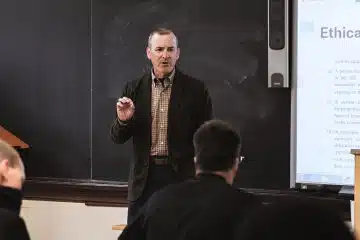COMECE protests removal of EU research program’s ethics clause
September 24, 2012
Catholic News Service
WARSAW, Poland — A commission representing the European Union’s Catholic bishops protested the removal of an ethics clause from a major EU research program, saying it could encourage funding of research using embryos.
“The procurement of human embryonic stem cells hasn’t been funded by the EU till now — but if this program now goes ahead as proposed, this will depend on the discretion of the governing European Commission,” said Jose Ramos Ascensao, legal adviser for research and bioethics for the bishops’ commission, COMECE.
“With many other organizations, we want greater protection for human embryos. Although the EU’s member-states see it as their prerogative to fund any research they want, EU funds shouldn’t be given to any projects involving embryo destruction.”
Members of the European Parliament are preparing to vote on “Horizon 2020,” the EU’s new research and innovation program, which will run from 2014 to 2020 with a budget of 87 billion euros ($113 billion).
Ascensao told Catholic News Service Sept. 21 that research on human embryonic stem cells had raised “important ethical issues” without achieving any “significant clinical benefits.”
He added that the European Court of Justice had banned the patenting of inventions using embryo destruction in an October 2011 ruling, thus “clearly defining a legal standard” within the EU.
“We think this should be made a binding part of the new research program,” Ascensao said. “It won’t make sense if the EU refuses to fund the procurement of human embryonic stem cells, but is ready to fund the remaining stages of projects which rely on them.”
COMECE represents more than a thousand Catholic bishops from the European Union’s 27 member-states. The commission has closely monitored debates on the use of embryos and stem cells under its Reflection Group on Bioethics.
Ascensao said he believed many European politicians and officials were ready to consider the Catholic Church’s moral teaching on issues such as embryo research.
“We’re repeating what we’ve always said — that every human being, whatever their stage of development, has dignity and should be protected,” he said.
“Although the church is one of the greatest champions of this position, it isn’t really grounded in theology. There’s a firm scientific and legal basis for opposing this kind of research funding, and one doesn’t have to be a Catholic to agree,” he added.













